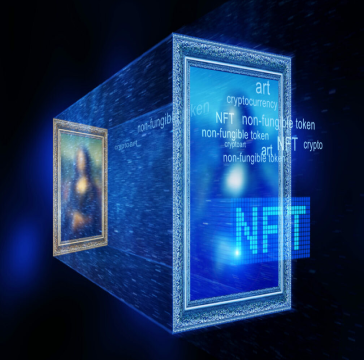Trust is the cornerstone of all commercial arrangements, much like most human interactions. Part of the risk surrounding the launch of a new venture has always been maintaining an agreement between two or more parties. With the emergence of Blockchain technology, it was inevitable that a primary application of its immutable record keeping would be in Smart Contracts.
At a basic level, Smart Contracts consist of an agreement stored in the form of a digital ledger on a Blockchain network. The fundamental advantage in the scenario is that all terms and conditions are executed automatically and all changes are recorded in a completely reliable and transparent manner.
Once they have been initiated, Smart Contracts make it extremely easy for any number of participants to have complete trust on its execution, with no dependence on an external arbitrator or central authority. As a consequence of the fact that trust and transparency are a built-in feature, none of the parties bound by the contract need to know each other. In fact, they can even be anonymous.
Smart Contracts unlock multiple unprecedented possibilities
Naturally, the growth of this innovative solution has followed more and more parties becoming familiar with its inherent strengths. The global market size of Smart Contracts in 2022 was $ 190.34 million, which is conservatively estimated to be valued at $ 1.34 billion by 2031 -at a CAGR of 24.2%. In fact, many experts consider this to be a huge underestimation. Their argument being an even more exponential rise, once a precedent has been established.
Once Blockchain technology evolved from a simple immutable and transparent digital ledger to include code that can self-execute on the basis of a pre-determined set of rules, Smart Contracts emerged. This has already led to as diverse a set of applications as supply chain management, automated control of microgrids for energy distribution, DeFi applications that include next-gen cryptocurrencies, and even gaming.
The emergence of highly secure programming languages created especially with Smart Contracts in mind – such as Vyper – is sure to expand possible future use cases into even more industries and application areas. Likewise, the rise of Layer 2 Blockchain solutions has removed many of the cost, speed and processing limitations, which could have played a dampening role in wider adoption. More and more players are being attracted by the notion of automated contract management that all concerned parties can implicitly trust. The next limitation to be overcome for widespread adoption is one shared by all breakthrough innovations.
A pool of legal experts and developers, who specialize in creating and overseeing Smart Contracts, has to emerge. This will require looking at compliance and regulatory issues anew. Will such rules be based on technology, or will there be legal considerations that anticipate and remedy possible sources of dispute? Of course, data protection and other related concerns around digital record-keeping will also need to be addressed.
However, such ‘teething problems’ aside, it’s not hard to presume that Smart Contracts are set to redefine a lot about our world – including many possible applications that we have yet to anticipate.
The opportunities for evolution are endless
As a Blockchain-As-A-Service (BAAS) platform Qila helps your business adopt Blockchain and crypto technologies to secure your business needs by minting non-fungible tokens, for real-world physical or digital assets, on a private Blockchain network.
Our ARK and ARK+ platforms offer easy and hassle-free Blockchain onboarding. Our PrivaSea wallet is an unimpeachable source of authenticated data that can help customers save all their critical information in a certifiable and trustworthy NFT format, in a single wallet.
In this brave new world of endless possibilities, let Qila help your business unlock the next level of growth, using Blockchain.



Discover how Blockchain unlocks transparency and efficiency, in industries from finance to healthcare.

Enhance trust, security, regulatory compliance, and data monetization with Tokenization.

NFTs transform value into unique digital tokens, revolutionizing investment and asset management.








 Explore Further
Explore Further
